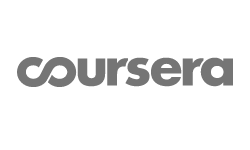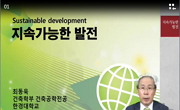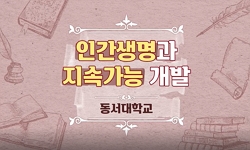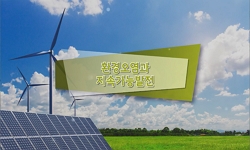The role of teachers has been explicitly emphasized to implement the vision of sustainable development(SD). Also, it is very important to understand the way student teachers understand SD and how they interpret their own professional task in terms of ...
http://chineseinput.net/에서 pinyin(병음)방식으로 중국어를 변환할 수 있습니다.
변환된 중국어를 복사하여 사용하시면 됩니다.
- 中文 을 입력하시려면 zhongwen을 입력하시고 space를누르시면됩니다.
- 北京 을 입력하시려면 beijing을 입력하시고 space를 누르시면 됩니다.
https://www.riss.kr/link?id=A82581976
- 저자
- 발행기관
- 학술지명
- 권호사항
-
발행연도
2011
-
작성언어
Korean
- 주제어
-
KDC
539
-
등재정보
KCI등재
-
자료형태
학술저널
-
수록면
102-113(12쪽)
-
KCI 피인용횟수
32
- 제공처
-
0
상세조회 -
0
다운로드
부가정보
다국어 초록 (Multilingual Abstract)
The role of teachers has been explicitly emphasized to implement the vision of sustainable development(SD). Also, it is very important to understand the way student teachers understand SD and how they interpret their own professional task in terms of SD, usually referred to as education for sustainable development(ESD). This study investigated student teachers' perceptions of SD and ESD using group interview. Key findings include, first, that they think SD as development which does not exceed the limits of natural environment and as wise management of resources/protection of environment for future generations. They also think SD as good thing though they don't understand the contested nature of SD. Second they think ESD as education about SD, but some student teachers say they can't explain ESD. Many student teachers prefer field trip to local examples for both elementary school students and themselves. Also they will teach only what the textbook says about SD and ESD during their school placement and as teachers. So it will be the beginning of ESD in school to include SD in the curriculum for students and student teachers. It is suggested to study student teachers' perception of SD focussing on how they think the relationship between protection of environment and economic growth.
목차 (Table of Contents)
- ABSTRACT
- Ⅰ. 서론
- Ⅱ. 연구방법 및 연구과정
- Ⅲ. 연구결과
- Ⅳ. 결론 및 제언
- ABSTRACT
- Ⅰ. 서론
- Ⅱ. 연구방법 및 연구과정
- Ⅲ. 연구결과
- Ⅳ. 결론 및 제언
- 참고문헌
- 부록 1. 집단 면담 프로토콜
참고문헌 (Reference)
1 최혜숙, "초등 예비교사들의 지속가능 발전에 대한 인식, 태도 및 실천 의지에 대한 조사 연구" 한국환경교육학회 23 (23): 129-144, 2010
2 조용환, "질적 연구" 교육과학사 1999
3 이선경, "지속가능발전 및 지속가능발전교육에 대한 대학생과 교사들의 인식" 한국환경교육학회 19 (19): 1-13, 2006
4 이선경, "유엔 지속가능발전교육10년(DESD)중간 평가를 위한 실태 조사 연구" 유네스코 한국위원회 2010
5 문순홍, "생태학의 담론" 솔 1999
6 허성욱, "持續可能한 發展의 原則에 대한 法經濟學的 考察- 效率性과 衡平性을 함께 고려하는 環境法의 一般原理로서의 可能性에 관하여" 한국환경법학회 27 (27): 39-87, 2005
7 Ferreira,J., "Whole-school Approaches to Sustainability: A Review of Models for Professional Development in Pre-service Teacher Education" Australian Research Institute in Education for Sustainability(ARIES)․Department of the Environment, Water, Heritage and the Arts 2006
8 UNESCO, "UN Decade of Education for Sustainable Development 2005-2014. International Implementation Scheme Draft"
9 Rauch, F, "The potential of education for sustainable development for reform in schools" 8 : 43-51, 2002
10 Fontana,A, "The Interview: From Neutral Stance to Political Involvement in Handbook of Qualitative Research" Sage Publications, Inc 695-728, 2005
1 최혜숙, "초등 예비교사들의 지속가능 발전에 대한 인식, 태도 및 실천 의지에 대한 조사 연구" 한국환경교육학회 23 (23): 129-144, 2010
2 조용환, "질적 연구" 교육과학사 1999
3 이선경, "지속가능발전 및 지속가능발전교육에 대한 대학생과 교사들의 인식" 한국환경교육학회 19 (19): 1-13, 2006
4 이선경, "유엔 지속가능발전교육10년(DESD)중간 평가를 위한 실태 조사 연구" 유네스코 한국위원회 2010
5 문순홍, "생태학의 담론" 솔 1999
6 허성욱, "持續可能한 發展의 原則에 대한 法經濟學的 考察- 效率性과 衡平性을 함께 고려하는 環境法의 一般原理로서의 可能性에 관하여" 한국환경법학회 27 (27): 39-87, 2005
7 Ferreira,J., "Whole-school Approaches to Sustainability: A Review of Models for Professional Development in Pre-service Teacher Education" Australian Research Institute in Education for Sustainability(ARIES)․Department of the Environment, Water, Heritage and the Arts 2006
8 UNESCO, "UN Decade of Education for Sustainable Development 2005-2014. International Implementation Scheme Draft"
9 Rauch, F, "The potential of education for sustainable development for reform in schools" 8 : 43-51, 2002
10 Fontana,A, "The Interview: From Neutral Stance to Political Involvement in Handbook of Qualitative Research" Sage Publications, Inc 695-728, 2005
11 Fien,J, "The Global Challenge of Sustainability, in Education and Sustainability: Responding to the Global Challenge" IUCN 1-11, 2000
12 Cotton,D.R.E., "Sustainable development,higher education and pedagogy:A study of lecturers` beliefs and attitudes" 13 (13): 579-597, 2007
13 Sterling,S, "Sustainable Education.Revisioning Learning and Change" Green Books 2001
14 Corney,G, "Student teachers’ learning about subject matter and pedagogy in education for sustainable development" 13 (13): 33-54, 2007
15 Summers,M., "Student teachers’ conceptions of sustainable development:the starting-points of geographers and scientists" 46 (46): 163-182, 2004
16 WECD, "Our Common Future In 우리 공동의 미래" 새물결 39-41, 1987
17 Dobson, A, "Justice and the Environment" Oxford University Press 1998
18 Giddings,B, "Environment,economy and society:Fitting them together into sustainable development" 10 : 187-196, 2002
19 Bennell,S, "Embedding Education of Global Citizenship and Sustainable Development (EGCSD) in Initial Teacher Education and Training Courses: Final Report, Bangor: World Education Centre, University of Wales"
20 Orr,D.W, "Ecological Literacy: Education and the Transition to a Postmodern World" State University of New York Press 1992
21 Firth,R, "Constructing education for sustainable development:The secondary school geography curriculum and initial teacher training" 13 (13): 599-619, 2007
22 Nikel,J, "Ascribing Responsibility: a Study of Student Teachers’ Understanding(s) of Education, Sustainable Development, and ESD" University of Bath 2005
23 UNCED, "Agenda 21: Programme of action for Sustainable Development, Rio Declaration on Development"
동일학술지(권/호) 다른 논문
-
- 한국환경교육학회
- 이선경(Sun-Kyung Lee)
- 2011
- KCI등재
-
- 한국환경교육학회
- 이일한(Il-Han Lee)
- 2011
- KCI등재
-
중학교의 에너지 교육 현황과 교사가 경험하는 에너지 교육 장애 요인
- 한국환경교육학회
- 서은정(Eun-Jung Seo)
- 2011
- KCI등재
-
- 한국환경교육학회
- 이주영(Joo Young Lee)
- 2011
- KCI등재
분석정보
인용정보 인용지수 설명보기
학술지 이력
| 연월일 | 이력구분 | 이력상세 | 등재구분 |
|---|---|---|---|
| 2026 | 평가예정 | 재인증평가 신청대상 (재인증) | |
| 2020-01-01 | 평가 | 등재학술지 유지 (재인증) |  |
| 2017-05-10 | 학회명변경 | 영문명 : 미등록 -> The Korean Society for Environmental Education |  |
| 2017-01-01 | 평가 | 등재학술지 유지 (계속평가) |  |
| 2013-01-01 | 평가 | 등재학술지 유지 (등재유지) |  |
| 2010-01-01 | 평가 | 등재학술지 유지 (등재유지) |  |
| 2009-08-28 | 학술지명변경 | 외국어명 : Journal of Korean Society for Environmental Education -> Korean Journal of Environmental Education |  |
| 2007-01-01 | 평가 | 등재학술지 선정 (등재후보2차) |  |
| 2006-01-01 | 평가 | 등재후보 1차 PASS (등재후보1차) |  |
| 2005-04-27 | 학술지등록 | 한글명 : 환경교육외국어명 : Journal of Korean Society for Environmental Education |  |
| 2005-01-01 | 평가 | 등재후보학술지 유지 (등재후보1차) |  |
| 2003-07-01 | 평가 | 등재후보학술지 선정 (신규평가) |  |
학술지 인용정보
| 기준연도 | WOS-KCI 통합IF(2년) | KCIF(2년) | KCIF(3년) |
|---|---|---|---|
| 2016 | 0.94 | 0.94 | 0.99 |
| KCIF(4년) | KCIF(5년) | 중심성지수(3년) | 즉시성지수 |
| 0.98 | 0.92 | 0.94 | 0.36 |





 ScienceON
ScienceON DBpia
DBpia






